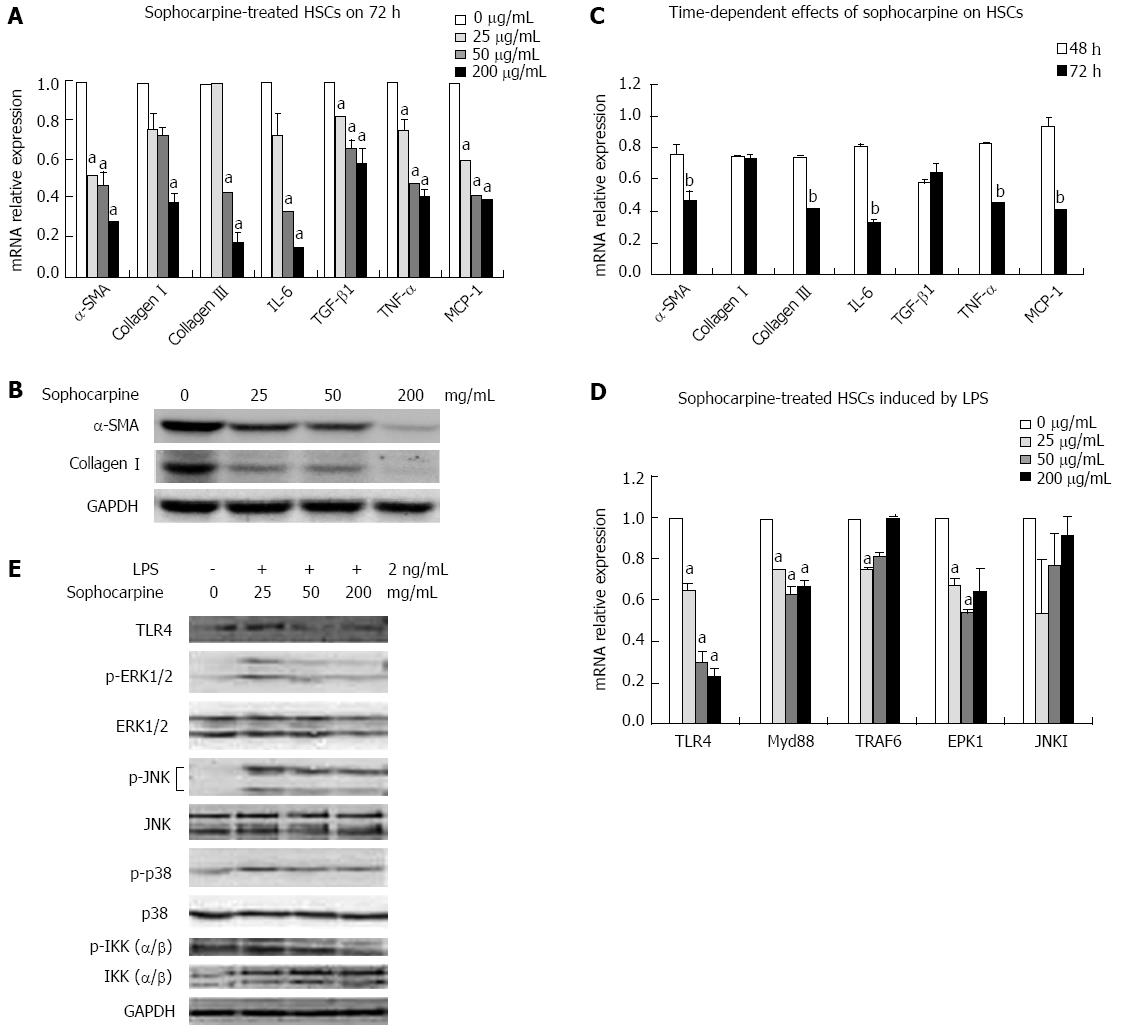Copyright
©2014 Baishideng Publishing Group Co.
World J Gastroenterol. Feb 21, 2014; 20(7): 1822-1832
Published online Feb 21, 2014. doi: 10.3748/wjg.v20.i7.1822
Published online Feb 21, 2014. doi: 10.3748/wjg.v20.i7.1822
Figure 4 Sophocarpine inhibits the activation of hepatic stellate cells by blocking the lipopolysaccharide-induced toll-like receptor 4 signaling pathway.
Primary HSCs were isolated and plated in 6-well plates (1 × 106 cells/well). Forty-eight hours later, the HSCs were treated with a gradient concentration of sophocarpine for 48 or 72 h. A: Real-time reverse transcription-polymerase chain reaction (RT-PCR) was performed to analyze the mRNA levels of α-SMA, collagen I, collagen III, IL-6, TGF-β1, TNF-α and MCP-1 in HSCs treated with a gradient concentration of sophocarpine for 72 h (compared to 0 μg/mL, aP < 0.05); B: Immunoblots of α-SMA, collagen I and GAPDH were detected by Western blot from HSCs treated with a gradient concentration of sophocarpine for 72 h; C: The mRNA expression of the above genes was detected in HSCs treated with sophocarpine (50 mg/mL) at 72 h compared to that at 48 h, bP < 0.05; D, E: Gradient concentration sophocarpine-treated HSCs were incubated with LPS (2 ng/mL), and real-time RT-PCR (compared to 0 μg/mL, aP < 0.05, D) and Western blot analysis (E) were employed to detect the expression of TLR4 pathway-related genes at the gene and protein levels (P value by two-tailed Student’s t test). LPS: Lipopolysaccharide; HSCs: Hepatic stellate cells; TGF-β: Transforming growth factor-β; IL-6: Interleukin-6; SMA: Smooth muscle actin; TNF: Tumor necrosis factor; MCP: Monocyte chemoattractant protein.
- Citation: Qian H, Shi J, Fan TT, Lv J, Chen SW, Song CY, Zheng ZW, Xie WF, Chen YX. Sophocarpine attenuates liver fibrosis by inhibiting the TLR4 signaling pathway in rats. World J Gastroenterol 2014; 20(7): 1822-1832
- URL: https://www.wjgnet.com/1007-9327/full/v20/i7/1822.htm
- DOI: https://dx.doi.org/10.3748/wjg.v20.i7.1822









